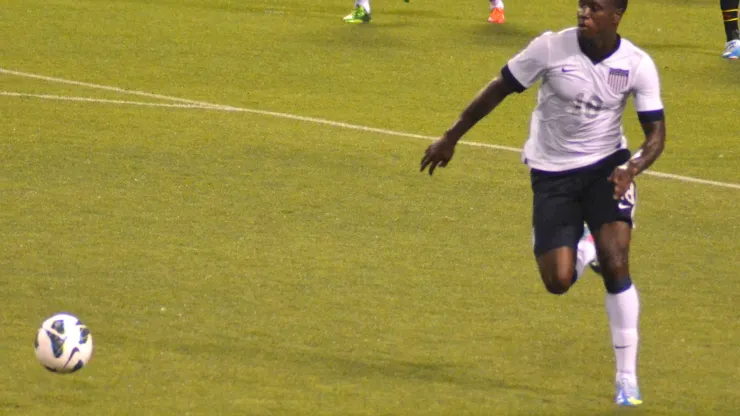[Scene: September 2018. Living room of Jurgen Klinsman, with the coach and a New York Times reporter present]
The United States men’s national team coach sits back in his chair and looks longingly out the window. The reporter begins this interview in the wake of the end of another interesting World Cup, this time in Russia.
“Coach,” he begins, “you just finished your second tour as the U.S. national team head coach. Looking back on these past seven years, what is the biggest lesson you’ve learned?”
Expecting the coach to talk about how far the U.S. program has come or needs to go, the reporter begins to write but stops suddenly when Klinsmann answers, “I will always regret not bringing him to Brazil with me.”
“You mean Fox Sports analyst Landon Donovan?”
“No, but that’s what people thought at the time. When Jozy Altidore pulled up in the Ghana match, I knew we were in trouble. There was no way he was going to play the rest of the tournament, and I knew that I had made a tactical mistake by not bringing a forward who has the skillset I needed to maintain the tactics I had drilled into that team.”
“No, with Jozy out, I had to wedge this team into a 4-2-3-1 system that was tight in the midfield and rely on Clint Dempsey as my only forward supported by the inexperienced Mix Diskerud. Or I had to bring in Aron Johansson (which prepared him for the Russia World Cup) or Chris Wondolowski, both of whom were scorers that had vastly different skills than I needed. I should have brought a forward that could have played up top my formation and held up the ball, or swapped with Clint at times and made runs out wide. Instead I brought guys I thought I would only need in the late stages of games.”
“I should have brought Eddie Johnson with the U.S. national team to Brazil.”
“If I would have done that, I would have been able to move players around the midfield to address the deficiencies I saw in that Ghana game, in particular moving Michael Bradley farther forward. However, with Diskerud as my playmaker, Bradley had to move back and was woefully unable to control play like he should have. We couldn’t beat a battered and injured Portugal team and we were pounded by the German machine.”
“But if EJ were in camp with the team, we would have lost Jozy’s incredible talent but I still could have kept my formation and tactics. EJ also had the experience to handle a World Cup match unlike my other forwards and has experience playing well in big games.”
“People kept saying that I should have brought Landon, but tactically that would not have helped me. That would have left me even more deficient defensively, and our midfield would have been shredded on the wings. No, EJ was the guy I needed to place Clint, Michael, and Jermaine Jones on the field in the positions where they would have succeeded.”
Klinsmann pauses, and sits back in his chair.
“The end result may not have been different; finishing second in Group G was always a tough draw in the round of 16. But we had such an opportunity, with Portugal hobbled and Belgium so talented but inexperienced in 2014. If we had the right players in place, we could have shocked people by beating Portugal, maybe drawing Germany, and surprising some inexperienced teams in the knock out rounds. Who knows where it would have ended?”
The American coach again just stares out the window, with a look on his face full of wonder of what might have been.
This fictional account is a little silly, but highlights a major deficiency in Klinsmann’s roster. If he would have brought Eddie Johnson or a similarly skilled forward, the United States coach could build his strategy using similar tactics that the U.S. used in the first match and in the friendlies leading up to the World Cup. Instead, as Kartik Krishnaiyer points out, the Yanks are now facing a scenario where they will have to possible alter their possession system or rely on inexperienced players to keep that system working. This is a serious concern for the U.S. and a potential match-up problem for them against their next two opponents.
200+ Channels With Sports & News
- Starting price: $33/mo. for fubo Latino Package
- Watch Premier League, Women’s World Cup, Euro 2024 & Gold Cup
The New Home of MLS
- Price: $14.99/mo. for MLS Season Pass
- Watch every MLS game including playoffs & Leagues Cup
Many Sports & ESPN Originals
- Price: $10.99/mo. (or get ESPN+, Hulu & Disney+ for $14.99/mo.)
- Features Bundesliga, LaLiga, Championship, & FA Cup
2,000+ soccer games per year
- Price: $5.99/mo
- Features Champions League, Serie A, Europa League & Brasileirāo
175 Premier League Games & PL TV
- Starting price: $5.99/mo. for Peacock Premium
- Watch 175 exclusive EPL games per season






